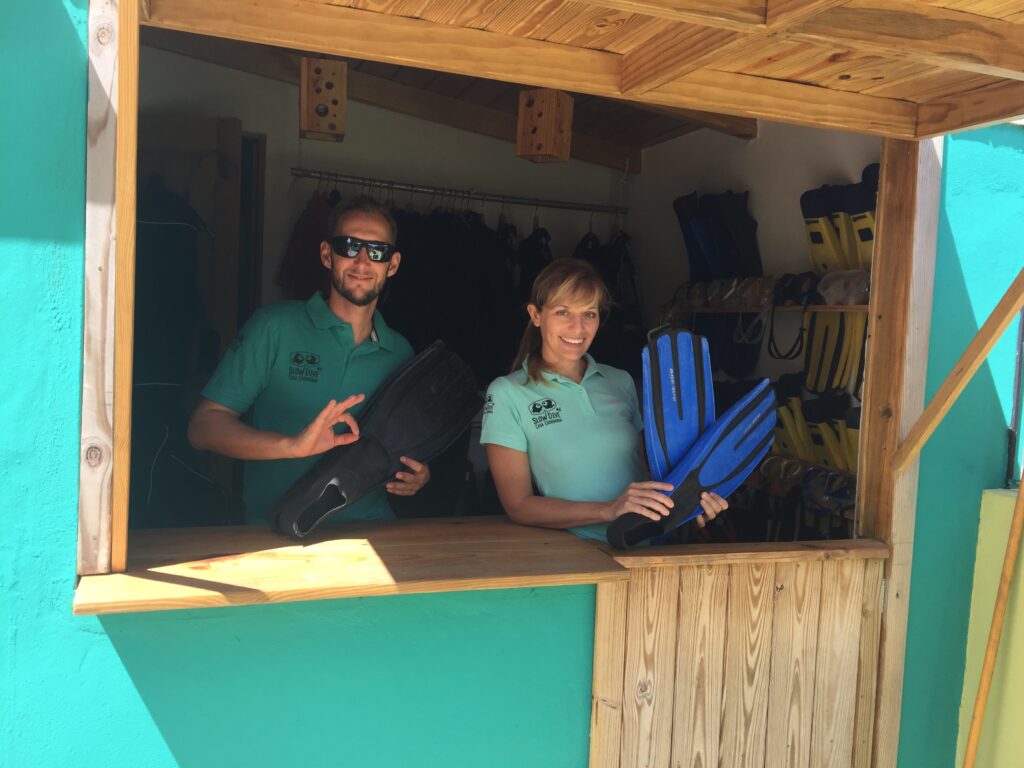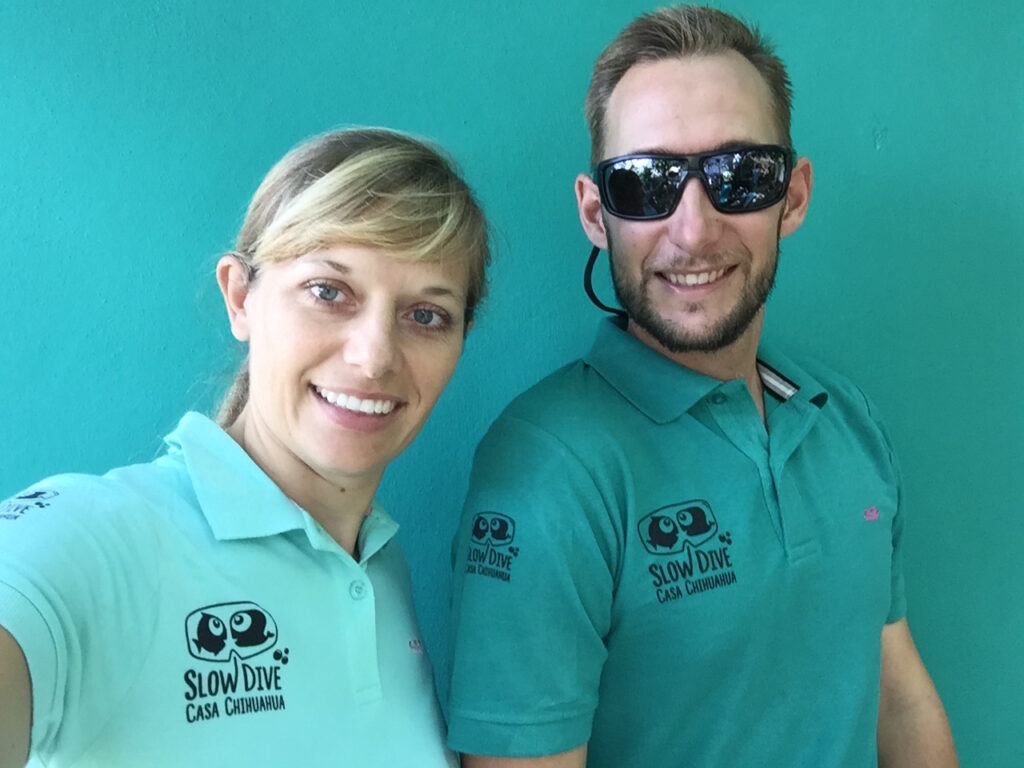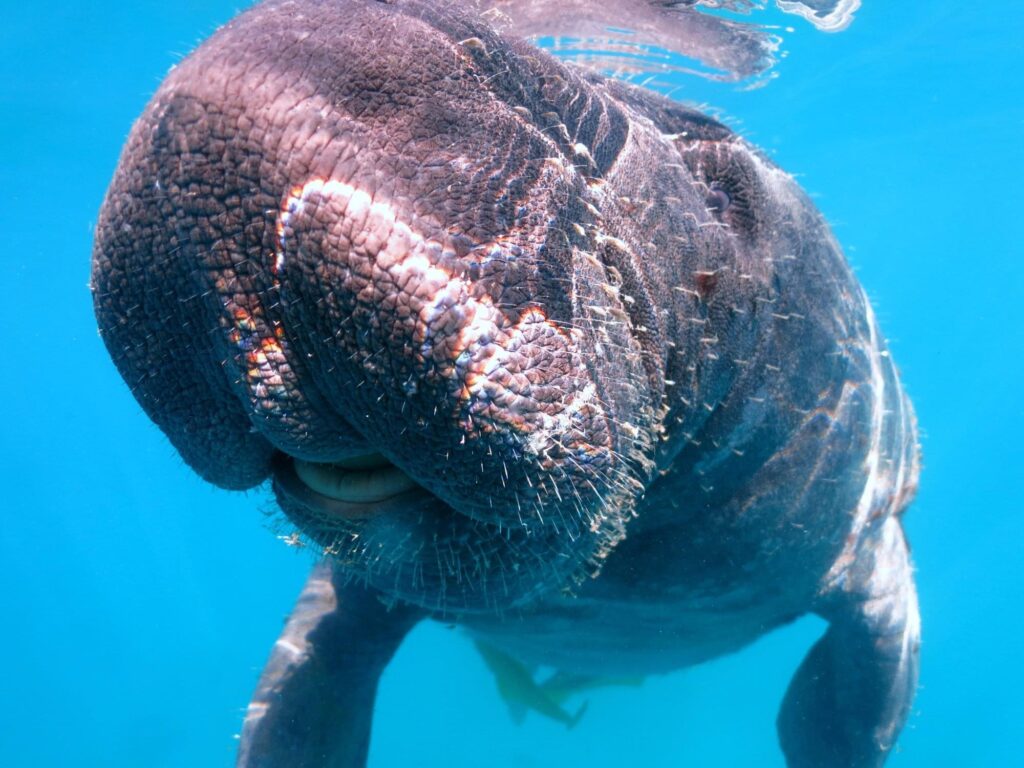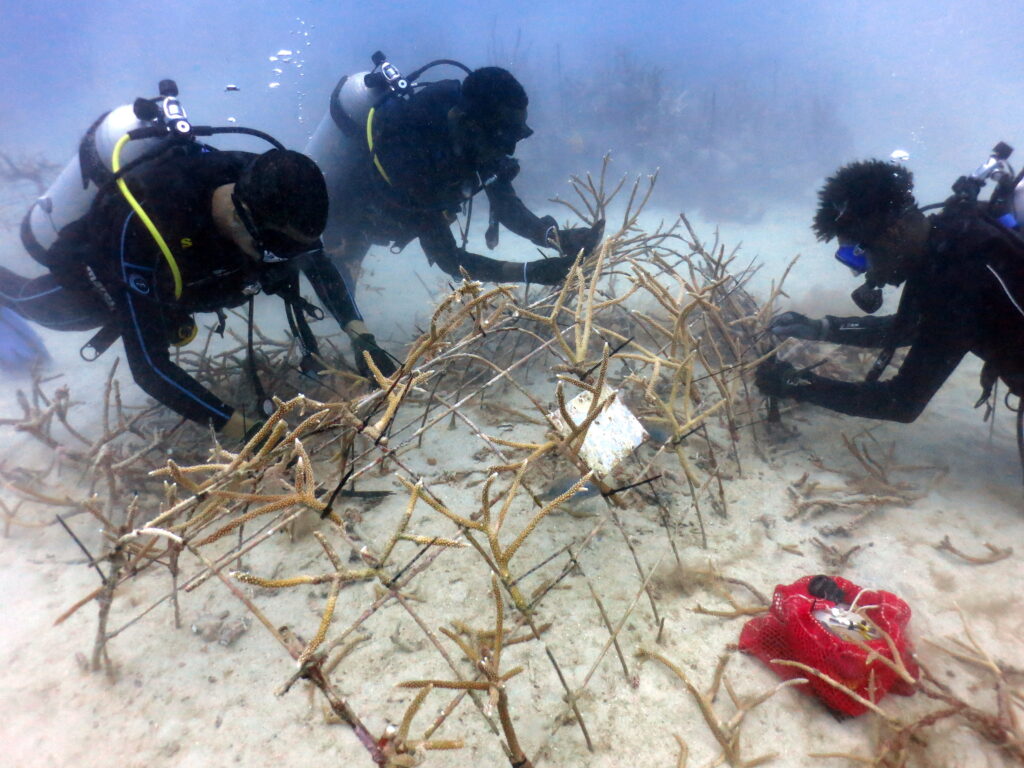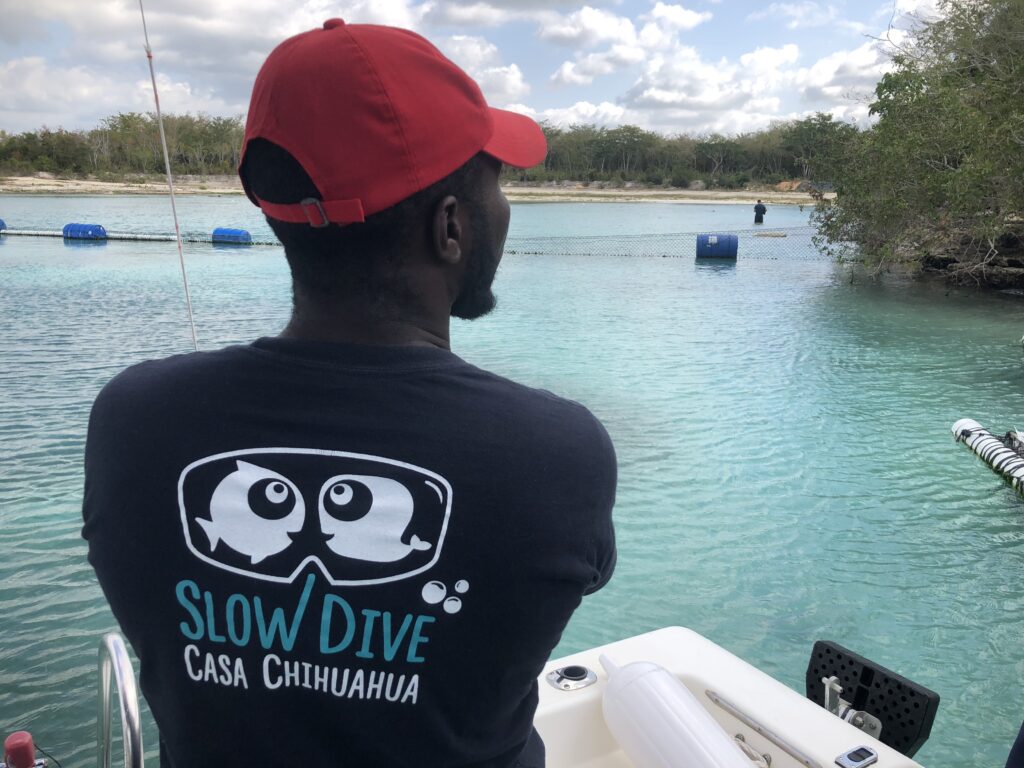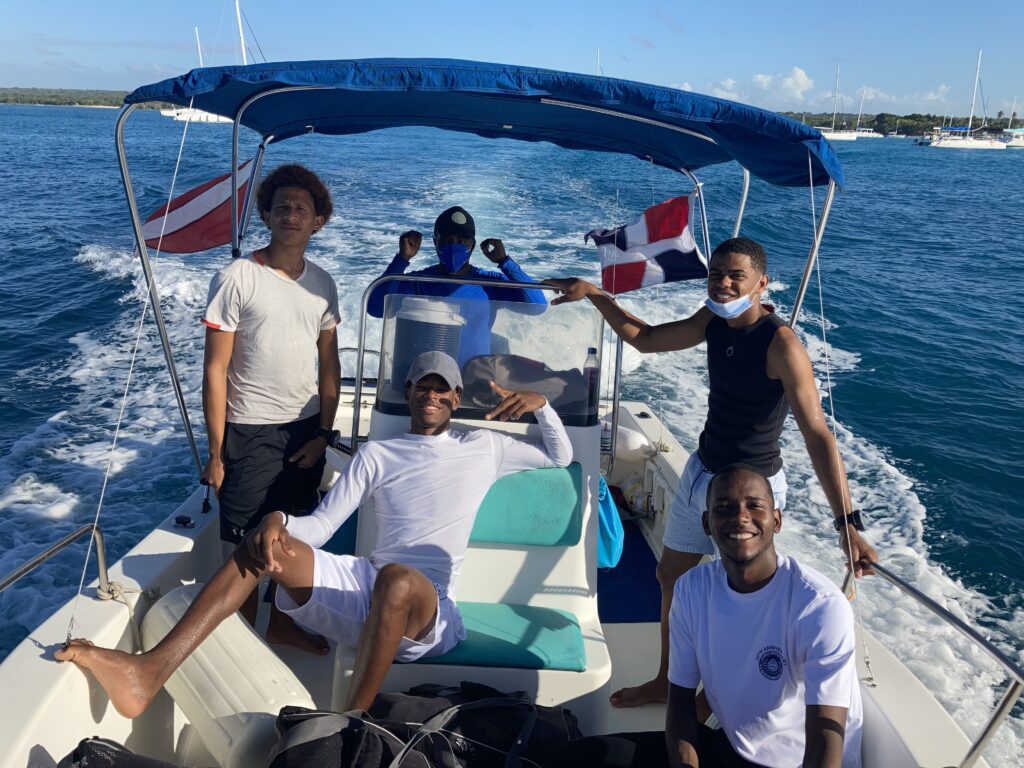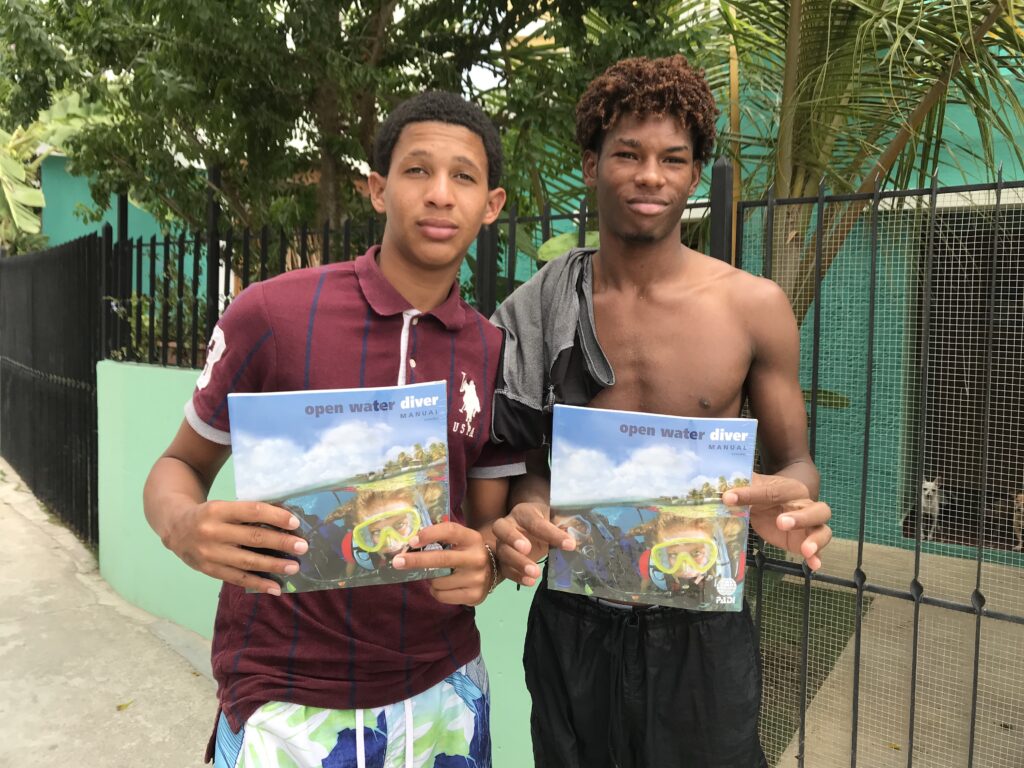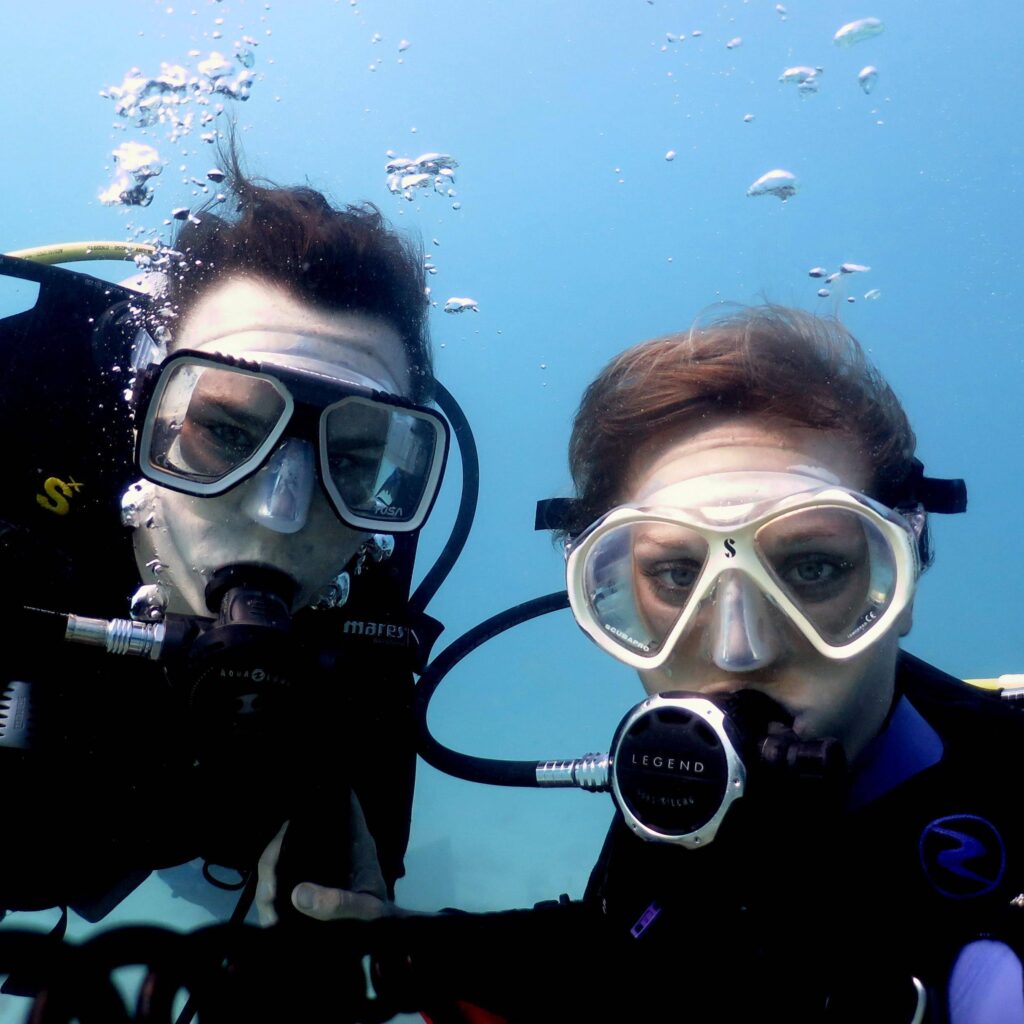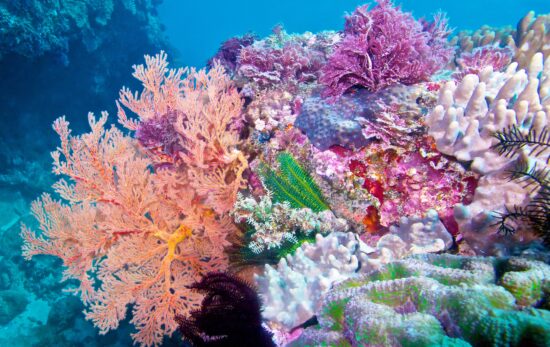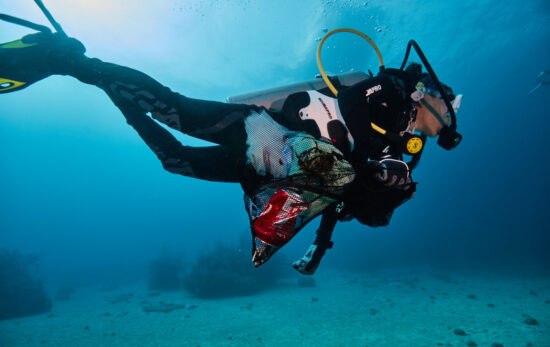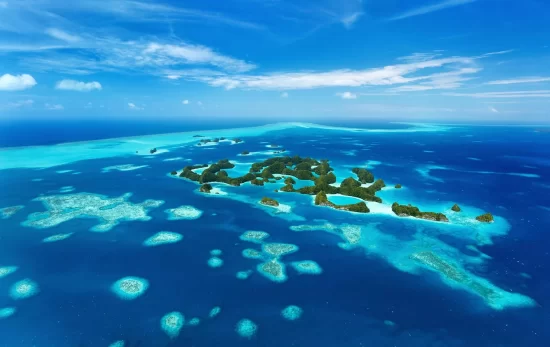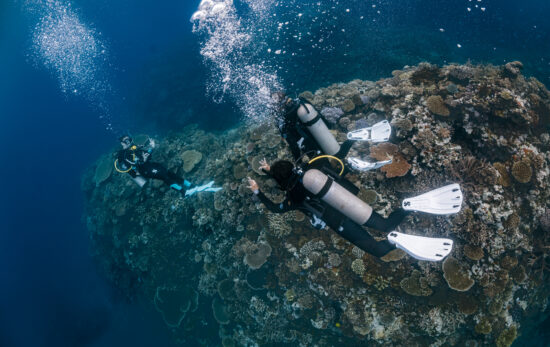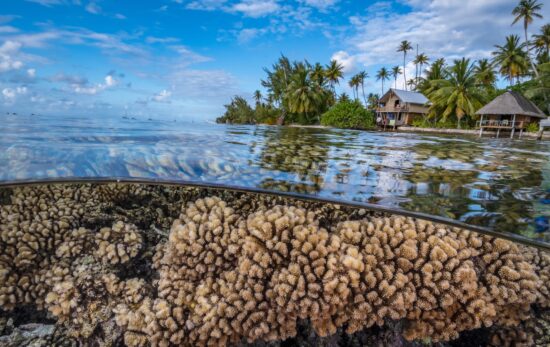Slow Dive – Casa Chihuahua is an eco-friendly, Green Fins certified PADI Dive Center and B&B in Bayahibe, Dominican Republic.
The team is dedicated to diving in a responsible way and advancing local marine conservation projects for global impact. We caught up with owners Julie and David to learn more about their story and justification for becoming a Green Fins Member.
Tell us about yourselves, what’s your story?
We are Julie & David, a Belgian couple of dive instructors, tour guides and nature lovers. After travelling around the world, we fell in love with the Dominican Republic and decided to settle in Bayahibe, a village that we already knew and loved after having lived here for 3 years in the past.
After having worked in big dive centers, we realized that we wanted to take more time to teach diving, because everyone has their own speed, and every student is different. We didn’t want to guide big groups of certified divers anymore, having no time to show them anything interesting. We created Slow Dive – Casa Chihuahua, a small dive center, dedicated to diving in a responsible way and also to diving for marine conservation projects. The name Slow Dive was inspired by the “Slow Food” movement based on the concept that the food we eat should be good (quality, healthy), clean (does not harm the environment), and fair (a fair price for consumers and producers).
Why is saving the ocean important to you?
Saving the ocean is primordial for many reasons! For us, the ocean is the most interesting place on Earth, it is another world that only a few people see or know. It is the most important ecosystem to save because it regulates everything else on Earth. If we want to save the Earth, we need to save the ocean. Because of the lack of knowledge about our oceans, and the fact that not many people see the problems with their own eyes, the ocean is not taken into account enough in conservation. We want to contribute to marine conservation and teach to other divers what we know about the ocean so they can better understand the urgency to act.
What made you choose to become a Green Fins member?
Our goal has always been to be a responsible dive center since the beginning, and when we heard about Green Fins, it was logical for us to be a member.
What has your experience been of becoming a Green Fins member? What impact has it had on your business?
Before Green Fins, we already had our own ideas of what to do and not do, but since we became a Green Fins dive center, we have learned more and have the motivation to do even better. Green Fins also provided us with some great materials, especially posters, that we use in our briefings to inform our clients about responsible diving. It is also nice to be part of a group of dive centers that have the same idea, and we hope more dive centers decide to become Green Fins members in the future.
What environmental achievements are you most proud of?
The environmental achievements we are the proudest of are the ones we have reached with FUNDEMAR, a local NGO dedicated to marine studies and conservation. We have been leading a project for them that consisted of teaching young Dominican guys and girls to dive and become technical divers, then work with us in the coral restoration project. With this project, we have been able to have a real impact and link with the local population and we have seen the evolution of those individuals over time. We also have been part of a project of re-introduction of three rescued manatees in the wild.
Would you recommend Green Fins to other dive operators? Why?
We would definitely recommend Green Fins to other dive operators because it has such a positive effect on business and helps minimize the dive industry’s impact on the environment.
What’s something about Green Fins that you think more people should be aware of?
Green Fins is totally free for dive centers! So why not be a member? Also, any dive center can be a member, even the ones that are not necessarily very eco-friendly at the beginning. Green Fins will give you some ideas to improve your score for the next year and everybody can improve their score easily if following their recommendations.
If you could ask the dive community to do one thing, what would it be?
Divers have an impact on the corals, and it is super easy to break some corals with one fin kick. It takes a few seconds to break it, and then so many years to grow back. I think every diver has broken or damaged least one thing underwater in their life despite it never on purpose. I think one of the most important things therefore to focus on is to insist on neutral buoyancy and a strictly “no-touch” policy and teach that to the divers as a dive guide.

